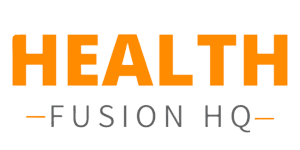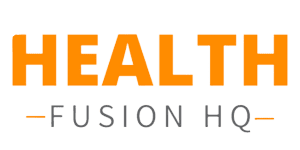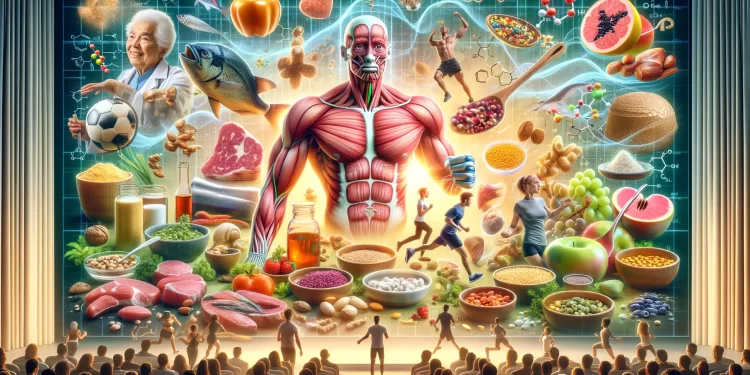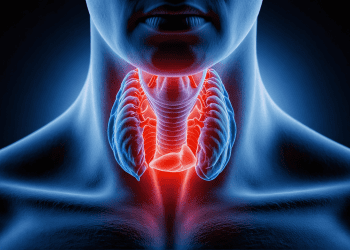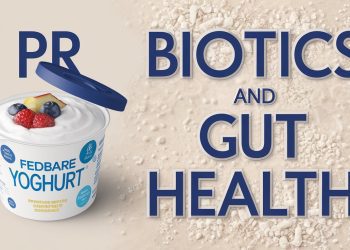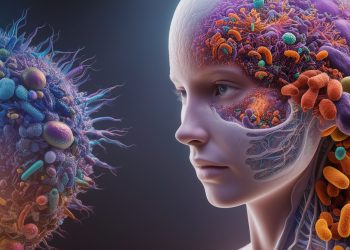Have you ever wondered about the true benefits of protein in your diet? Protein, often hailed as a key player in nutrition, plays a pivotal role in our overall health and wellness. However, amidst the sea of dietary advice, there are many misconceptions about protein intake that need addressing. In this article, we’ll explore the critical role of protein in our bodies and debunk some common myths.
| Key Takeaways | Details |
| Balanced Diet for Satiety | Combining complex carbohydrates with protein and fat is recommended for satiety and success in a balanced diet. |
| Protein Source Variety | Besides meat and dairy, it’s important to consume seafood, nuts, seeds, and soy products, as many Americans do not meet the recommended intake for these. |
| Healthiest Protein Sources | Plant proteins may be better for overall health and the environment compared to animal proteins. Examples include beans, chickpeas, lentils, nut butter, nuts and seeds, soymilk, tofu, tempeh, veggie patties, and quinoa. |
| Benefits of Plant Proteins | Plant proteins provide fiber, vitamins, minerals, antioxidants, and other beneficial nutrients along with protein. |
| Protein’s Role in the Body | Protein is broken down into amino acids, used for energy production or building structures like muscle. It fuels every chemical reaction in the body. |
| Essential Amino Acids | There are nine essential amino acids that the body cannot produce and must be obtained through diet. |
| Recommended Protein Intake | Adults should consume 0.8 grams of protein per kilogram of body weight, with higher amounts recommended for older adults or those recovering from illness or surgery. |
| Complete Plant Proteins | Soy and quinoa are complete plant proteins, containing all essential amino acids. Other plant proteins can be combined to form a complete amino acid profile. |
| High-Protein Foods | High-protein foods include lean meat, fish, tofu, nuts, flax seeds, hemp seeds, and chia seeds. |
| Protein and Muscle Preservation | Higher protein diets, especially when coupled with physical activity, are better at preserving muscle and preventing frailty. |
Overview of Protein’s Role in Health
Protein is more than just a nutrient; it’s a vital component of every cell in our body. It’s crucial for building and repairing tissues, making enzymes and hormones, and is an essential building block of bones, muscles, cartilage, skin, and blood. Unlike fat and carbohydrates, our body does not store protein, making it imperative to get enough from our diet.
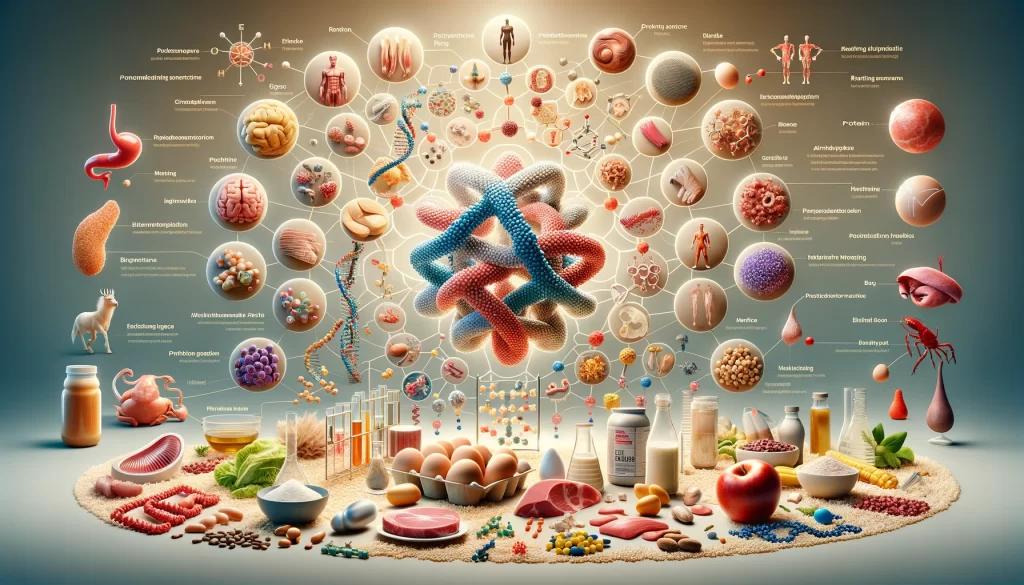
Addressing Common Misconceptions
There’s a widespread belief that high protein intake is primarily for athletes or bodybuilders. However, protein’s benefits extend far beyond muscle building. According to a comprehensive review by Healthline, protein intake influences several aspects of health, including:
- Reducing Appetite and Hunger Levels: Protein is more satiating than fats and carbohydrates, helping you feel full with less food.
- Increasing Muscle Mass and Strength: Adequate protein is essential for muscle growth and maintenance, especially when coupled with strength training.
- Bone Health: Contrary to the myth that protein, particularly animal protein, is bad for bones, studies show it can improve bone health and reduce the risk of osteoporosis.
- Boosting Metabolism: A higher protein intake can increase metabolism and calorie burning.
- Lowering Blood Pressure: Studies have linked higher protein intake with lower blood pressure levels.
- Weight Management: Protein can aid in weight loss and help prevent weight regain after intentional weight loss.
These points highlight the multifaceted role of protein in maintaining and improving overall health, debunking the myth that its benefits are limited to muscle building.
In the following sections, we’ll delve deeper into the benefits of protein, its dietary sources, and practical tips for incorporating it into your diet. Stay tuned to learn more about how this essential nutrient can enhance your health and well-being.
What is Protein?
Definition and Basic Understanding
Proteins are large, complex molecules that are crucial for the structure, function, and regulation of the body’s tissues and organs. They are composed of hundreds or thousands of smaller units called amino acids, attached in long chains. There are 20 different types of amino acids that combine to form proteins, each with a unique 3-dimensional structure and specific function. The sequence of amino acids in a protein is determined by the sequence of genes, and these proteins perform a vast array of functions in the body, from building tissues to facilitating chemical reactions.
Types of Proteins and Their Sources
Proteins can be categorized based on their functions, which include:
| Type of Protein | Function |
| Antibodies | These proteins bind to specific foreign particles, like viruses and bacteria, to protect the body. |
| Enzymes | They carry out almost all of the chemical reactions in cells and assist in forming new molecules. |
| Messenger Proteins | Such as hormones, they transmit signals to coordinate biological processes between different cells, tissues, and organs. |
| Structural Components | These proteins provide structure and support for cells and allow the body to move. |
| Transport/Storage Proteins | They bind and carry atoms and small molecules within cells and throughout the body. |
Protein sources vary widely and include both animal and plant-based foods. Animal sources like meat, fish, dairy, and eggs are considered complete proteins, providing all essential amino acids. Plant-based sources like beans, lentils, nuts, and whole grains also provide protein but may need to be combined to form a complete amino acid profile.
The Science of Protein: Healthline’s Perspective
Reducing Appetite and Hunger
Protein is known for its ability to reduce appetite and hunger levels, making it a key nutrient for weight management. It achieves this by increasing satiety, reducing the level of the hunger hormone ghrelin, and boosting levels of peptide YY, a hormone that makes you feel full. This can lead to a natural reduction in calorie intake.
Muscle Mass and Strength
Protein is essential for muscle building and maintenance, especially in conjunction with strength training. Adequate protein intake helps maintain muscle mass and promotes muscle growth, which is crucial not just for athletes but for everyone as they age.

Bone Health
Contrary to the myth that protein, particularly animal protein, is harmful to bones, studies have shown that protein can improve bone health. A higher intake of protein is associated with better bone mass retention and a lower risk of osteoporosis and fractures, especially in older adults.
Metabolic Boost and Fat Burning
Protein has a higher thermic effect compared to fats and carbohydrates, meaning it can boost metabolism and increase calorie burning. This makes protein a key component in weight loss diets and for those looking to improve their metabolic health.
Blood Pressure and Heart Health
Higher protein intake has been linked to lower blood pressure levels. Studies have shown that increasing protein in the diet can lead to reductions in systolic and diastolic blood pressure, as well as improvements in other heart disease risk factors like LDL cholesterol and triglycerides.
In summary, protein plays a multifaceted role in our health, from reducing hunger and supporting muscle and bone health to boosting metabolism and improving heart health. Understanding these benefits and incorporating adequate protein into your diet can significantly contribute to overall wellness and disease prevention.
Dietary Sources of Protein
Animal-Based Proteins
Animal proteins are known as complete proteins, meaning they contain all nine essential amino acids. Here are some common sources and their benefits:
- Eggs: A versatile source of protein, also rich in vitamins and minerals.
- Fish and Seafood: High in protein and omega-3 fatty acids, beneficial for heart and brain health.
- Lean Meat: Includes chicken and turkey, providing high-quality protein and important nutrients like iron and vitamin B12.
- Wild Game: A leaner alternative to domesticated meats, often lower in fat and higher in certain nutrients.
- Dairy Products: Such as milk, yogurt, and cheese, offering protein along with calcium and vitamin D.
Nutritional Value Comparison: Animal proteins generally supply additional nutrients like vitamin B12 and heme iron, which is more readily absorbed than non-heme iron found in plant foods. However, it’s important to choose healthier options like lean meats and avoid ultra-processed products.
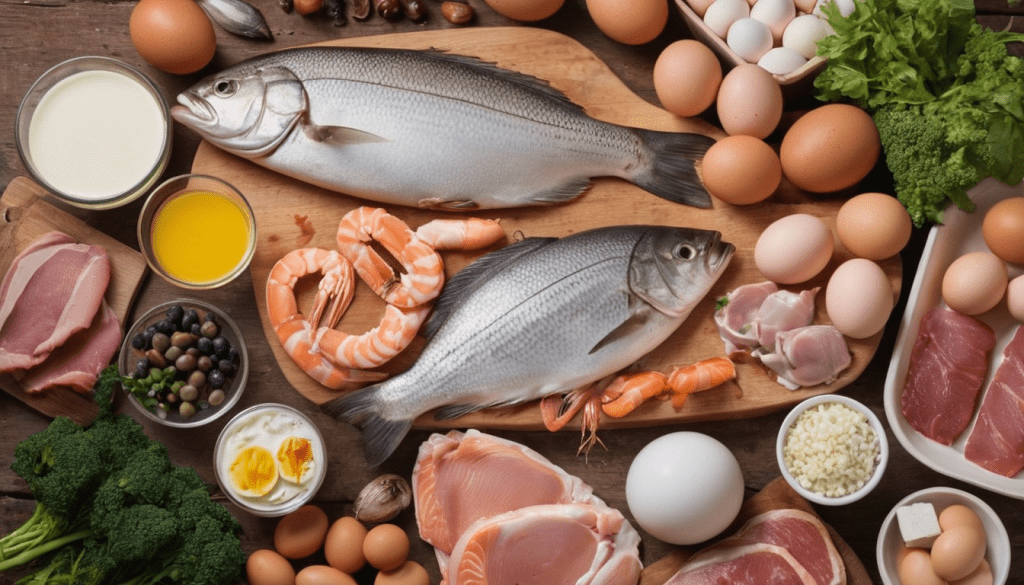
Plant-Based Proteins
Plant-based proteins are essential for vegans and vegetarians and can be a healthy part of any diet. Some key sources include:
- Lentils and Legumes: Excellent sources of protein, fiber, and nutrients like iron and potassium.
- Quinoa: A complete protein containing all nine essential amino acids, also rich in fiber and minerals.
- Tofu and Soy Products: Versatile protein sources that can be used in various dishes, also containing essential amino acids.
- Nuts and Seeds: Such as almonds, chia seeds, and hemp seeds, providing protein along with healthy fats and fiber.
- Whole Grains: Like buckwheat and Ezekiel bread, offering protein along with other nutrients.
Balancing a Plant-Based Diet: To ensure optimal protein intake, it’s important to consume a variety of plant-based protein sources. This helps in getting all the essential amino acids, as many plant proteins are incomplete. Combining different plant proteins, like rice and beans or hummus and pita, can provide complete protein profiles.
Both animal and plant proteins have their unique benefits and can be part of a balanced diet. For those on a plant-based diet, variety and combination are key to meeting protein needs.
Daily Benefits of Protein: Roles and Requirements for Health and Fitness
The daily protein needs of an individual vary based on several factors, including age, sex, physical activity level, and overall health. Generally, the Dietary Reference Intake (DRI) suggests:
| Group | Recommended Daily Protein Intake |
| Adults | 0.8 g protein/kg body weight (e.g., 56 g for a 70 kg person) |
| Athletes | 1.2 to 2.0 g protein/kg body weight |
| Elderly | 1.0–1.2 g protein/kg body weight (as per PROT-AGE Study Group & ESPEN) |
| Elderly with Acute or Chronic Illnesses | 1.2–1.5 g protein/kg body weight |
| Elderly with Severe Illnesses, Injuries, or Malnutrition | 2.0 g protein/kg body weight |
Protein’s Role in Body Functions
Protein plays a crucial role in various bodily functions:
- Building and Repairing Tissues: Proteins are essential for the growth and repair of body tissues, including muscles, skin, organs, and blood vessels.
- Oxygenating the Body: Hemoglobin, a protein in red blood cells, transports oxygen throughout the body.
- Aiding Digestion: Certain proteins act as enzymes, facilitating digestion and metabolism.
- Hormone Regulation: Proteins are involved in creating and regulating hormones, which are chemical messengers in the body.
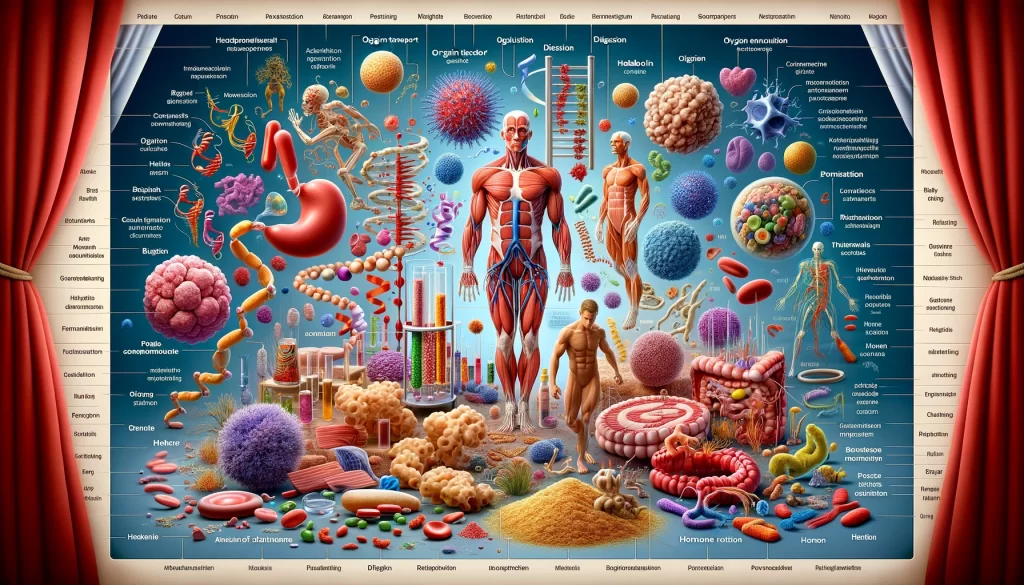
Fitness Benefits of Protein
Protein is particularly important for those engaged in fitness activities:
- Recovery Post-Exercise: Protein helps repair and build muscle tissues that are broken down during exercise.
- Reducing Muscle Loss: Adequate protein intake is vital for preventing muscle loss, especially during weight loss or as one ages.
- Maintaining a Healthy Weight: Protein can increase satiety, helping to reduce overall calorie intake and maintain a healthy weight.
Protein is a vital nutrient for overall health, playing key roles in bodily functions and fitness. It’s important to consume enough protein daily, tailored to individual needs and lifestyle. For specific dietary advice and protein requirements, consulting a healthcare provider or a registered dietitian is recommended.
Protein and Muscle Mass: A Deep Dive by NCBI
Discovering the true benefits of protein is essential in understanding its impact on muscle mass. This article delves into the insights provided by the National Center for Biotechnology Information (NCBI), focusing on optimal protein intake for muscle development and critically evaluating current protein recommendations.
Optimal Protein Intake for Muscle Mass
Exploring the Benefits
Higher-Protein Diets: The role of protein in muscle synthesis is well-established. Diets rich in protein support the growth and repair of muscle tissues, crucial for those engaged in regular physical activity or strength training. Proteins provide essential amino acids, the building blocks for muscle development, highlighting the importance of protein-rich diets in enhancing muscle mass.
Addressing Misconceptions
Myth vs. Reality: Common myths suggest that excessive protein intake leads directly to significant muscle gains. However, muscle development is influenced by various factors, including genetics, workout intensity, and overall diet. While protein is vital, it’s not a standalone solution for muscle growth.
Balanced Protein Consumption: The quality of protein is as important as the quantity. Complete proteins, containing all essential amino acids, are crucial for muscle health. These are found in both animal and plant-based sources, like quinoa and soy.
Protein Recommendations Revisited
Critical Evaluation
Current Guidelines: The average adult is recommended to consume about 0.8 grams of protein per kilogram of body weight per day. However, these guidelines are often debated. The NCBI suggests that these recommendations might be insufficient, especially for specific groups like athletes or the elderly.
Adequacy for Different Groups: Athletes may require between 1.2 to 2.0 grams per kilogram of body weight to support muscle repair and growth. Similarly, older adults might need more protein to combat muscle loss due to aging.
Real-Life Application
Practical Dietary Practices: In everyday diets, these recommendations translate into a balanced approach where protein sources vary. It’s about incorporating a variety of protein sources throughout the day, not just focusing on high-protein meals.
Impact on Muscle Health: Adhering to these protein recommendations can significantly impact muscle health. For athletes, it means better performance and recovery. For the elderly, it translates to sustained muscle strength and reduced risk of falls and mobility issues.
Understanding the role of protein in muscle mass is crucial. Whether you’re an athlete, an aging adult, or somewhere in between, applying these protein recommendations can lead to better muscle health and overall well-being. Explore more about incorporating protein effectively into your diet and embrace a healthier lifestyle.
Addressing Common Myths and Misconceptions
Debunking Protein Myths
Clarifying Misconceptions about Protein and Health
Protein, a vital nutrient for health and fitness, is often surrounded by a myriad of myths and misconceptions. Here, we aim to clarify these misconceptions by contrasting popular beliefs with scientific evidence.
- Protein Only Builds Muscle: While protein is a key component of muscle, it is also essential for bones, joints, tendons, ligaments, hair, antibodies, hormones, enzymes, and more. It supports a healthy immune system and plays a role in body composition and blood sugar regulation.
- Eating Too Much Protein Causes Kidney Disease: Studies have shown that high protein intake only harms the kidneys if there is an underlying kidney or liver disease. Healthy kidneys are adept at removing the extra nitrogen that comes with high protein consumption.
- Eating Less Protein Aids Weight Loss: Contrary to this belief, not eating enough protein can make it harder to lose weight. Protein helps keep you full, boosts metabolism, and has the highest thermic effect among macronutrients. Cutting protein often leads to muscle loss, not fat loss.
- Insufficient Protein in Plant-Based Diets: While most plant foods do not contain as much protein as animal products, a variety of plant protein sources can provide all essential amino acids. Combining different plant proteins, like lentils and rice, can create a complete protein profile.
- Protein Intake Timing is Irrelevant: Research suggests that to maximize muscle protein synthesis, it’s best to consume about 20 to 30 grams of protein per meal. This includes distributing protein intake evenly throughout the day.
- Protein Turns into Sugar: This myth is unfounded. Protein-rich foods and supplements are digested slowly, and research has shown that meals containing 25-40% of total calories from protein help maintain healthy blood sugar levels.
These insights help debunk common protein myths, providing a clearer understanding of the role of protein in our diet and overall health.
Protein and Special Health Considerations
When discussing the benefits of protein, it’s crucial to consider its role in special health conditions, such as pregnancy and aging. These life stages have unique nutritional requirements, and protein plays a significant part in meeting them.
Protein Needs in Special Conditions
- During Pregnancy: The demand for protein increases significantly during pregnancy. Protein is essential for the growth and development of the fetus, including the brain and other vital organs. It also supports the mother’s health, aiding in the expansion of blood volume and the growth of maternal tissues.
- Aging: As we age, maintaining muscle mass becomes more challenging due to natural physiological changes. An increased intake of protein can help counteract age-related muscle loss, known as sarcopenia, and support overall strength and mobility.
Consulting Healthcare Professionals
Given the varying benefits of protein across different life stages and health conditions, it’s important to seek personalized advice from healthcare professionals. They can provide tailored recommendations based on individual health needs, dietary preferences, and lifestyle factors. This ensures that protein intake is optimized for personal health and well-being.
Understanding the benefits of protein in special health conditions like pregnancy and aging is key. Consulting with healthcare professionals can provide the necessary guidance to ensure that protein needs are adequately met for optimal health.

WebMD’s Take on Protein Benefits
WebMD provides comprehensive insights into the benefits of protein and its importance across different age groups. Understanding these recommendations can help tailor protein intake for optimal health.
Protein Requirements Across Ages
| Age Group | Daily Protein Requirement |
| Children under 4 | 13 grams |
| Children ages 4 to 8 | 19 grams |
| Children ages 9 to 13 | 34 grams |
| Women and Girls ages 14 and over | 46 grams |
| Boys ages 14 to 18 | 52 grams |
| Men ages 19 and over | 56 grams |
Generally, it’s recommended that 10% to 35% of daily calories come from protein. This range remains consistent regardless of physical activity levels. After age 40, due to the risk of muscle loss (sarcopenia), protein needs may increase.
High-Quality Protein Sources
Identifying the best sources of protein is crucial for meeting these dietary needs:
- Animal-Based Proteins: Fish, poultry, lean beef or pork, tofu, eggs, and dairy products.
- Plant-Based Proteins: Nuts, seeds, legumes (beans, peas, lentils), and grains (wheat, rice, corn).
Combining plant-based proteins with smaller portions of animal-based sources can ensure a complete amino acid profile.
Diet Considerations
WebMD also discusses the role of protein in popular diets like the Atkins and Ketogenic diets. These diets emphasize high protein and fat intake while limiting carbohydrates. However, they are often more effective in the short term, with challenges in long-term adherence. Focusing solely on protein and fat can lead to nutrient deficiencies and associated health issues like fatigue, dizziness, and constipation.
In conclusion, WebMD highlights the benefits of protein across various age groups, emphasizing the importance of high-quality sources and balanced diet considerations. It’s important to be mindful of the amount and type of protein consumed to maintain overall health and well-being.
Final Thoughts
In summary, the benefits of protein are extensive and critical to our overall health and well-being. Protein is not just a nutrient; it’s a vital component of every cell in our body, playing a key role in building and repairing tissues, supporting metabolic functions, and contributing to the overall strength and vitality.
Understanding the importance of protein across various life stages—from children to adults and the elderly—is crucial. Each group has unique protein needs, and meeting these requirements is essential for maintaining good health, muscle mass, and energy levels.
However, it’s important to approach protein intake with balance and knowledge. This means choosing high-quality sources of protein, both animal and plant-based, and incorporating them into a well-rounded diet. It’s not just about the quantity of protein consumed but also the quality and the combination of different sources.
We encourage everyone to make informed dietary choices, considering the critical role of protein in their diet. Whether you’re an athlete, a growing child, an active adult, or an aging senior, understanding and applying these protein recommendations can lead to better health outcomes and a more vibrant life.
Let’s embrace the benefits of protein by making balanced and informed choices in our daily diets, leading to a healthier and more fulfilling lifestyle.
FAQ Section: The Multifaceted Health Benefits of Protein
Q: What is the healthiest protein to eat? A: While animal protein sources pack more protein in smaller quantities, plant protein may be better for overall health. Plant proteins like beans, chickpeas, lentils, nut butter, nuts and seeds, soymilk, tofu, tempeh, veggie patties, and quinoa are not only rich in protein but also provide fiber, vitamins, and minerals. They are linked with better mental status and fewer physical function impairments and are a more environmentally friendly choice.
Q: What does protein do for your body? A: Protein, when consumed, is broken down into amino acids, which are used to produce energy or build structures like muscle. It fuels every chemical reaction in the body. There are 20 amino acids, and our body can naturally produce all but nine of them, known as “essential amino acids.” The Dietary Guidelines for Americans recommend adults consume 0.8 grams of protein per kilogram of body weight.
Q: Are plant proteins complete proteins? A: Soy and quinoa are complete plant proteins, meaning they contain all of the essential amino acids. Most other plant proteins are not complete, but it’s not necessary to consume all essential amino acids at the same time. A varied diet with different protein and fiber sources will help in getting all essential amino acids.
Q: What foods are high in protein? A: High-protein foods include lean meat, fish, tofu, nuts, flax seeds, hemp seeds, and chia seeds. Lean meat is a healthy choice for animal protein, and fish is beneficial for its omega-3 fatty acid content. Tofu, made from soybeans, is a versatile and complete plant protein.
Q: How much protein should an average adult consume daily? A: The average adult should consume about 0.8 grams of protein per kilogram of body weight per day. For someone weighing 170 pounds, this amounts to about 60 grams. Older adults or those recovering from illness or surgery should aim for closer to 1.2 grams per kilogram.
Q: What are the benefits of combining complex carbohydrates with protein and fat? A: Combining complex carbohydrates with protein and fat is the best recipe for satiety and success. This balanced combination helps in feeling full and satisfied, preventing overeating and aiding in weight management.
